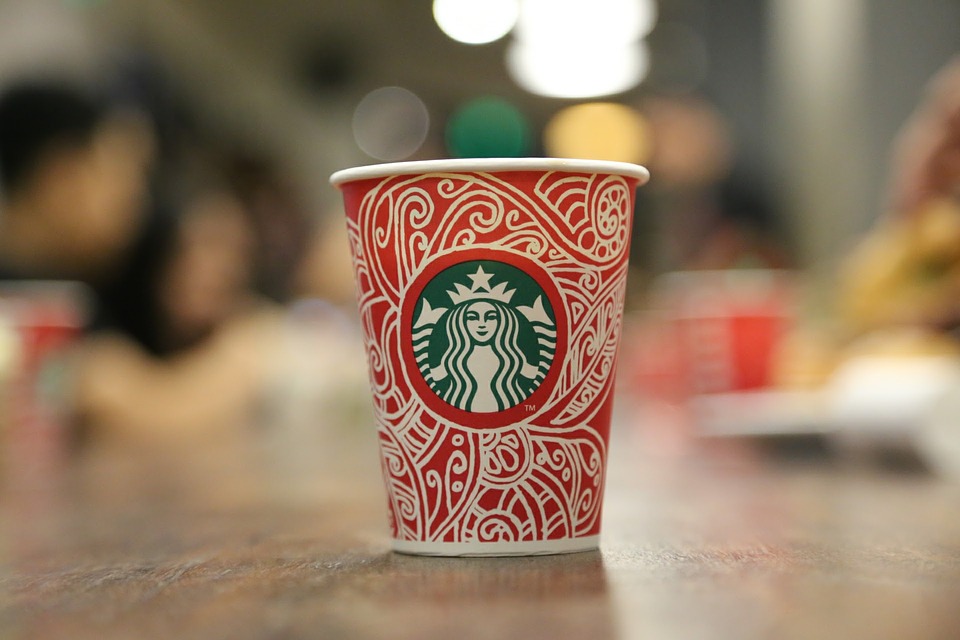So much has been made by various groups about the “War on Christmas,” but is there actually a war? One side would tell you that there is a full on assault by secular elves, bashing down nativities with their tainted candy canes. The other would claim that it is only in the minds of paranoid fundamentalists, running in circles clutching their Bibles and screaming “Oh, Holy Night!” to drown out “Santa Claus is Coming to Town.” So…who is right?
It is no great secret that I would be considered by many to be one of the Bible clutching fundamentalists. That being said, as to the phrase itself, it really couldn’t matter less to me whether someone wishes me “Happy Holidays” or “Merry Christmas.” I do not live in a dream world in which I think every person I encounter celebrates the Christian holiday, and I am well aware of the secularization of Christmas that has been encouraged for quite some time by even Christian parents, buying their children loads of gifts and sitting them on Santa’s lap at the mall. As a side note, those can be truly fun and enjoyable Christmas activities, secular or not. It is also notable that “The Holidays”- even in the traditional sense- do encompass multiple days including Thanksgiving, Christmas, and the New Year, so the phrase really does have its seasonal place even for a Christian.
There IS an aspect of this debate that truly does perplex me as a Christian, however. My issue lies not in a simple choice of phrase or red holiday cup. My complaint is when organizations exclude Christ from terminology and remove any religious references in situations in which it makes very little sense to do so- i.e. when the celebration in question is not ambiguous or all-inclusive but CLEARLY related to Christmas. With all of the talk of cultural appropriation, there is little talk of religious appropriation.
The way that the religious aspects of Christmas are purposefully and carefully removed and corresponding iconography is also taken away from most public displays these days would be ludicrous if it was applied to any other religious holiday. It is hard to imagine a Hanukkah-specific display which called the menorah a “holiday candle holder,” removed the Star of David and replaced it with a secular symbol, and covered tables and windows only with cartoon dreidels and latkes. Similarly, it would seem ridiculous to host a Ramadan celebration called a “Holiday Fast and Feast,” for fear of alienating anyone who did not celebrate Ramadan by mentioning its real name. The very idea seems (and truly is) ridiculous, but we rarely realize that we have done the same thing to Christmas. Holidays related to religions that are the minority in our society are generally given more respect as cultural traditions, and people make more effort to acknowledge them in their TRUE and correct forms in relation to their religion of origin. People also show less aversion and fear in recognizing the role of God in these holidays. That being said, these celebrations are also acknowledged less overall- and thus exploited less- as the Christmas season and celebration is by far the largest (and most economically profitable) in our country.
Since it is such a significant part of our country’s fabric, the way we celebrate Christmas and our perceptions of these methods are worth discussing. One example of the aversion to acknowledge ANY religious connection to what is obviously a religious holiday can often be seen in our corporate language. These days, most people receive a “Holiday Break” or attend a “Holiday Party.” If the “Holiday Party” was decorated with menorahs, Kwanzaa candles, AND angels, or if it was simply decked with evergreens and snowflakes, this would actually make sense. However, the “Holiday Party” is generally decorated solely with Christmas items- Christmas trees, ornaments, poinsettias, candy canes, Santa Claus impersonators bearing gifts, etc. It is clearly a Christmas party going by another name- one which completely removes the word “Christmas” and any possible connection to its namesake- Christ. People ask at their desks, “Are you going to the Christmas party?” but Corporate would be terrified to use the word. The implication is that people have no issue drinking their hot chocolate and sharing a joke with Santa, but they might have a problem with naming Saint Nicholas’ holiday out loud or God forbid seeing an angel at the top of the tree.
We can also clearly see the trend in our public celebrations, such as the Macy’s Thanksgiving Day Parade (which I love and watch religiously- no pun intended). The parade is a festive and entertaining Thanksgiving/Christmas celebration which generally cuts all religious connection from its many Christmas offerings. If you were to land in New York City and you had previously lived on the moon, you might think that this parade was celebrating: 1.) Thanksgiving (although to whom you were giving thanks would not be clear to you) and 2.) Santamas (a celebration of Santa and his elves).
In many ways, the exclusion is really more ridiculous than insidious. Are non-Christians really so scared of mentioning Christ that we need to remove Him even from the name of the holiday? Do they really not realize that the holiday they are celebrating- be it in a secular or religious manner- is actually called Christmas and has its root in religious observance? Of course they realize this, whether they celebrate Christ or not, and I would argue that very few people of any persuasion would be offended by calling the holiday by its real name. Many of my non-Christian friends will wish me a “Merry Christmas,” and they have no problem doing so.
All of this being said, I believe that there is nothing wrong with including the secular aspects of Christmas in our celebrations, publicly or privately. These parts of the season are a fun addition to most of our holiday memories. I do, however, think that it is in very poor taste to jump through hoops to remove the deity from a specific religion’s holiday while simultaneously using that holiday for economic gain. It is also regrettable to excoriate worshipers of that religion when this purposeful exclusion of their deity from one of their most holy days causes them distress. Conversely, it is ridiculous and futile for observers of that religious holiday to attempt to strong arm anyone into their method of observance. Ironically, those finding the most fault with secular businesses for being predictably secular are often the biggest proponents of capitalism and the free market. In the public sector, businesses should be able to celebrate however they think they will be most profitable, as they are not religiously run organizations and often do not share religious values.
On the other side of the coin, Christians are allowed to be perplexed and annoyed, and even to acknowledge the silliness of the acrobatics of many groups and companies in their attempts to cut out any religious affiliation to Christmas. I would argue, however, that rather than whine or become angry, Christians should simply shake their heads at a confused culture and seek to remedy their complaints both at home, in their own businesses, and with their patronage. No one should be coerced or bullied into celebrating or even acknowledging Christmas.
When all is said and done, the complaints have been registered, and the arguments have been made, the only real question for a Christian at the end of the day is: how should we best deal with the increasing secularization of one of our most sacred days? The key is to “remember the reason for the season” with our families and children. We must check our own secularism. Christians must acknowledge that we bare a huge portion of the blame in the way the modern holiday is celebrated. Our failure to keep the focus on Christ- making His birth the center of the holiday for ourselves and our children- and our frenetic and rampant holiday materialism have confused and encouraged an increasingly non-Christian society. We can’t put up our little nativities, demand that people use our terminology, and then ignore God in our own celebrations. In short, we can’t to have our fruit cake and eat it, too.
Thanks for reading, and don't forget to Click here to Subscribe!About the Author

|
Jackie Chea is a blogger from San Antonio, Texas who holds a B.A. in Psychology and an M.A. in Community Counseling from the University of Texas at San Antonio. She writes on political and cultural issues from a conservative, religious standpoint. She lives in the Lone Star State with her husband, Nick, and their 7-year-old son, Lincoln. |


Facebook Comments